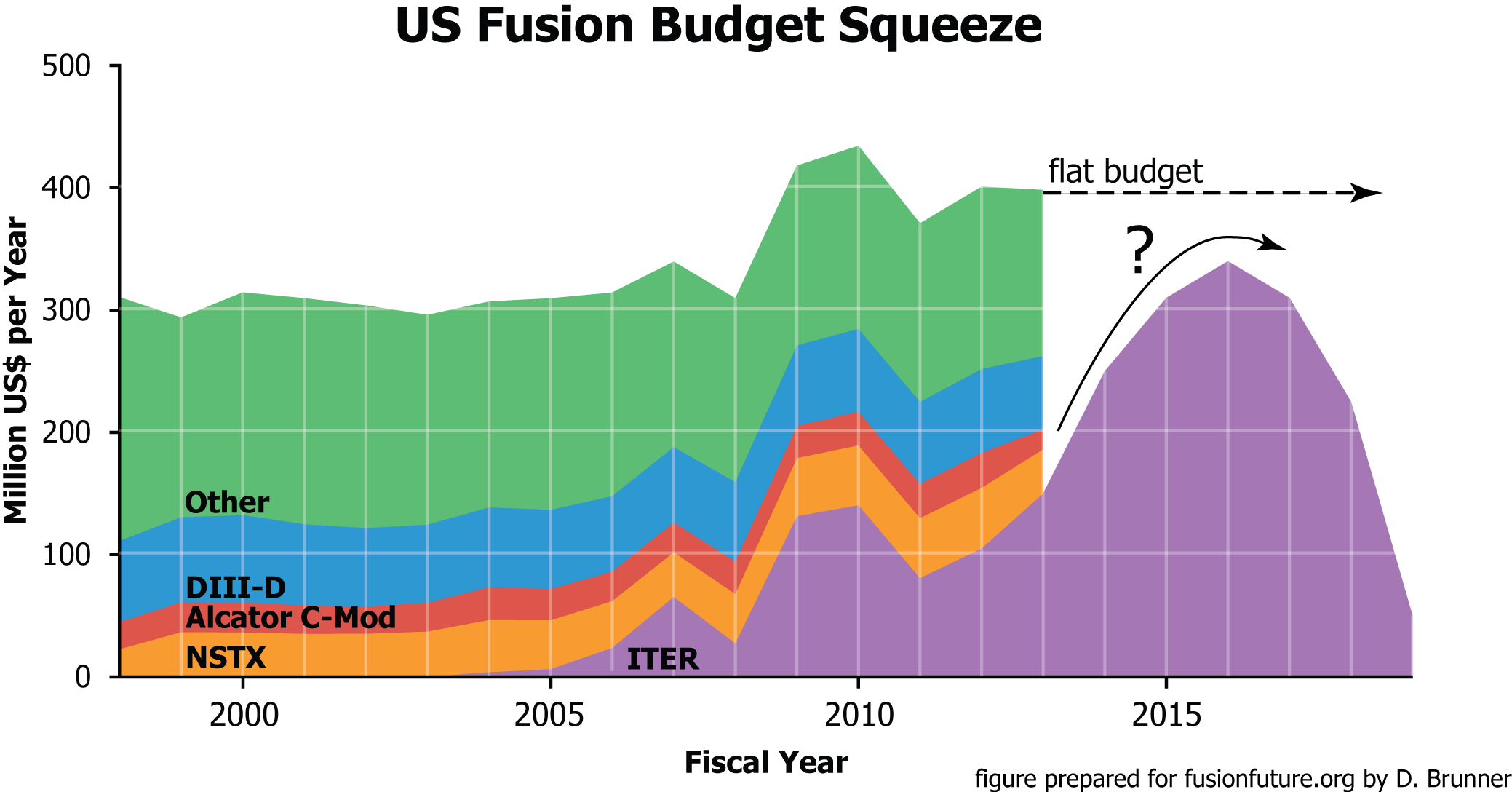
FPA: Brinkman Defends Fusion funding in FY 2013 Budget Request
FPA: Brinkman Defends Fusion funding in FY 2013 Budget Request
Fusion Power Associates recently released their notes on the March 22nd House Energy and Water Appropriations Subcommittee hearing where DOE Office of Science Director William Brinkman defended the budget for ITER:
“In Fusion Energy Sciences, the budget includes support for the ITER project, an international fusion experiment involving six nations and the European Union. The U.S. remains committed to the scientific mission of ITER, while maintaining a balanced research portfolio, and will work with ITER partners to accomplish this goal. ITER aims to produce the world’s first “burning plasma,” which will result in net energy production from sustained thermonuclear reactions. This is the culmination of decades of research in fusion.
“I want to emphasize that eighty percent of our ITER funding is spent in the United States, with U.S. designed and constructed components sent to the project site located in France. If you include the support of American scientists working overseas, that share of ITER funds used to support American workers rises to ninety percent. ITER will engage U.S. industry and our national labs in design and construction work for the project. In order to support an increase in ITER funding, we had to make several difficult decisions in the rest of the U.S. fusion program, including an early closure of the Alcator C-Mod tokamak at MIT. Even so the proposed budget for FY13 is not sufficient to keep the project on track and we are discussing with our partners how we might mitigate its effects.
“The difficult decisions in Fusion and other areas were not made lightly, and reflect the choices necessary to ensure a strong American infrastructure for innovation. I look forward to working with you, Mr. Chairman, and the rest of the Committee to fully fund the Office of Science budget request.”
Brinkman’s written statement further shows this support and goes on to mention MIT’s Alcator C-Mod:
“The Fusion Energy Sciences program request reflects the continued U.S. commitment to the scientific mission of ITER, while maintaining a balanced research portfolio across the program. The ITER experiment aims to produce the world’s first “burning plasma,” in which thermonuclear reactions will produce net energy for the first time (with a projected amplification factor of ten).
“The funding increase of $45 million for the U.S. contributions to the ITER Project bring the FY 2013 request to $150 million and will enable the U.S. to make long-lead procurements as the project enters its construction period. Eighty percent of U.S. ITER funding is spent in the United States. The majority of our ITER obligations are “in-kind,” with components designed and built in the U.S. before being shipped to France for final assembly into the ITER apparatus.
“The continued long-term success of the U.S. fusion science efforts also depends on maintaining a healthy domestic fusion program. The FY 2013 budget seeks to balance these competing priorities in the context of constrained budgets. Domestic research in most areas is reduced, while program balance is retained. The FY 2013 budget request ceases operations at the Alcator C-Mod tokamak facility at the Massachusetts Institute of Technology. Remaining investments still enable support for a broad program in fusion and plasma science research that will be highly impactful and maintain a vibrant U.S. workforce through, among other means, international partnerships.”
Fusion Power Associates noted that “During questioning, Frelinghuysen said, “Fusion sort of comes out as a loser here,” as domestic fusion programs see their money drawn away to increase funding for ITER. The ITER funding would still be lower than needed for the U.S. to fulfill its FY13 obligations. Brinkman commented: “That’s a problem we are working right now,” adding, “We intend to fulfill our (total) obligation. He also acknowledged, “We are taking some risk here.”
To read ASP’s Fusion white paper, click here.






[…] We move to the back of the bus. […]